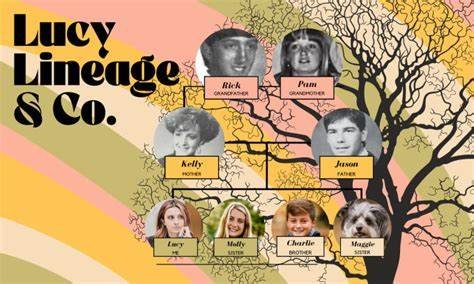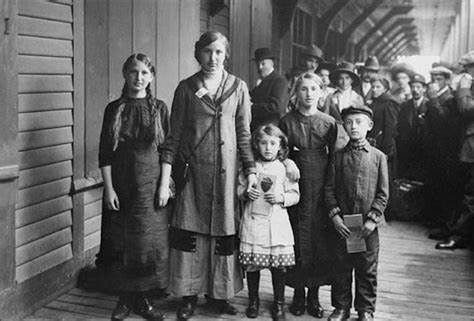Family names are more than just identifiers—they carry stories, histories, and connections to our ancestors. While common surnames like Smith or Johnson are easily recognized, many lesser-known family names have equally fascinating origins. These uncommon names often reflect the diversity of human history and culture, offering a unique glimpse into the lives of our forebears. Let’s explore some of these rare family names and the intriguing stories behind them.
1. Kincaid
The surname “Kincaid” is of Scottish origin, derived from the Gaelic word “Ceann” meaning “head” or “chief” and “Càide” meaning “battle” or “fight.” This name was likely given to families who lived near a headland or a battlefield, suggesting a history tied to leadership or military prowess. The Kincaid family was historically a prominent clan in Scotland, particularly around the area of Stirlingshire. Over time, the name spread to other countries, including the United States, where it is now considered relatively rare.
2. D’Angelo
The Italian surname “D’Angelo” translates to “of the angel” and is typically found in southern Italy. The name is often thought to have originated in the medieval period, when religious imagery was commonly used in surnames. Families bearing this surname likely had a connection to the church, either through service or some form of religious distinction. The name suggests a lineage tied to spiritual devotion or a symbolic connection to celestial beings. Today, “D’Angelo” can be found in several regions of the world, particularly among Italian-American families.
3. Tuffet
The surname “Tuffet” is quite rare, but it has its roots in Old French. The word “tuffet” originally referred to a small, padded cushion or low stool used in 17th-century France. The name was likely given to individuals who made or sold such cushions. Over time, the name evolved into a family surname, with some variations existing across different countries. The rarity of the name today reflects the decline in the use of “tuffets” as a common household item, but the name still holds a charming connection to an earlier time.
4. Fleischer
“Fleischer” is a German surname that means “butcher” in English. Though it is uncommon outside of German-speaking regions, this surname has a deep connection to trade and craftsmanship. Historically, a “Fleischer” was someone who worked as a butcher, preparing and selling meat for local communities. The surname was often passed down through generations, becoming a marker of family occupation. Today, the name can be found across the world, especially in areas with German heritage.
5. Kowalski
This surname, common in Poland, is derived from the occupation of blacksmithing, with “kowal” meaning “blacksmith” in Polish. The “ski” suffix is typical in Polish surnames, indicating a connection to a specific place or family trait. Kowalski families likely came from towns or regions known for metalworking, and the name reflects an important part of Poland’s cultural history. The surname Kowalski has been made famous worldwide through pop culture, most notably as the surname of the character in the animated film Madagascar.
6. Finkelstein
A Yiddish surname of Jewish origin, “Finkelstein” translates to “diamond stone” in German, where “finkel” means “sparkle” or “diamond” and “stein” means “stone.” This surname was likely given to families involved in the jewelry trade or those with an affinity for wealth and precious stones. Over time, the name has spread across the globe, especially in areas with large Jewish populations. The surname often represents a legacy of skill in craftsmanship, business, or trade, with some families having a rich history in the diamond or jewelry industries.

7. Ramey
The surname “Ramey” is an uncommon name with French roots, derived from the old French word “ramée,” meaning “branch” or “grove.” It likely referred to people who lived near a wooded area or grove, possibly working as foresters or wood gatherers. There are also theories that the name originated as a variation of the Old French surname “Raimbault,” which means “wise protector.” Over the centuries, the name has migrated to different parts of the world, especially to the United States, where it is found most often in the southern states.
8. Cziráky
The surname “Cziráky” is of Hungarian origin and is tied to the aristocracy. The Cziráky family was an influential noble family in Hungary, with deep roots in the country’s history. The name itself is thought to have been derived from a place name or a specific geographic feature in Hungary. The Cziráky family was connected to military and political events in Central Europe, and their legacy includes involvement in various royal courts and armies. Today, it remains a rare and prestigious surname, often found among descendants of Hungarian nobility.
9. Malaprop
“Malaprop” is an extremely rare surname with a humorous origin. The term “malaprop” is derived from the character Mrs. Malaprop in Richard Sheridan’s play The Rivals (1775), where the character uses words incorrectly, often with comical results. The surname likely originated as a nickname for someone known for misusing language or in a playful reference to the character. Though the name is incredibly rare, its amusing origin gives it an intriguing and whimsical appeal.
10. Quackenbush
An uncommon surname of Dutch origin, “Quackenbush” is believed to have derived from a nickname meaning “duck bush,” likely referring to someone who lived near a pond or marshland populated by ducks. The name may have originally been a descriptive reference to someone’s geographic location, and over time it became hereditary. Although it is uncommon, the name Quackenbush has persisted in American and Dutch records and often carries a playful and quirky reputation due to its distinctive sound.
Conclusion
Uncommon family names are often the result of historical, cultural, and occupational influences, reflecting the unique stories of our ancestors. Whether derived from occupation, geographic location, or amusing circumstances, these rare surnames hold deep connections to the past. Exploring the meanings and origins behind uncommon family names allows us to better understand not just our own lineage, but also the rich tapestry of human history.










